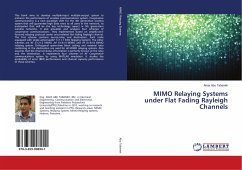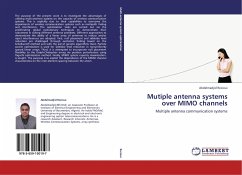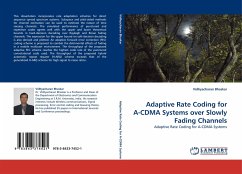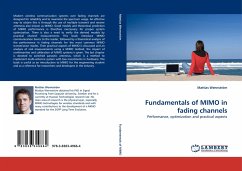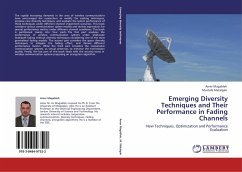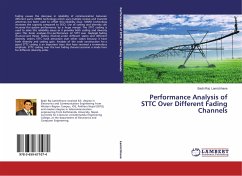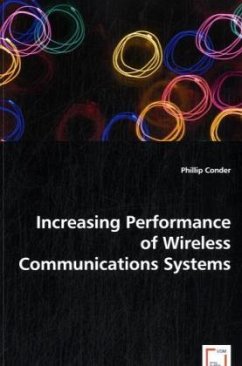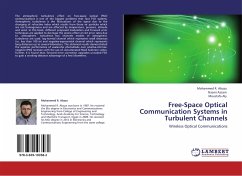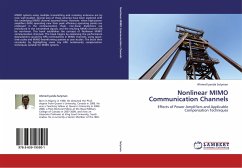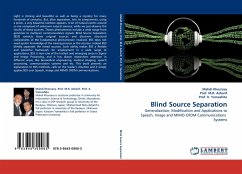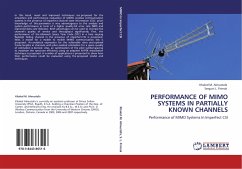
PERFORMANCE OF MIMO SYSTEMS IN PARTIALLY KNOWN CHANNELS
Performance of MIMO Systems In Imperfect CSI
Versandkostenfrei!
Versandfertig in 6-10 Tagen
52,99 €
inkl. MwSt.

PAYBACK Punkte
26 °P sammeln!
In this book, novel and improved techniques are proposed for the simulation and performanceevaluation of MIMO wireless communication systems in the presence of imperfect channel state information (CSI). priori knowledge of this parameter is very advantageous to the analysisand system performance in term of a higher quality bit error rate (BER) and improved data rate(bits/sec). Both advantages can be used to increase the channel s quality of service and throughputsignificantly. First, the performance of the Alamouti Space Time Code (STC) in a time varyingRayleigh fading channel in the presence ...
In this book, novel and improved techniques are proposed for the simulation and performanceevaluation of MIMO wireless communication systems in the presence of imperfect channel state information (CSI). priori knowledge of this parameter is very advantageous to the analysisand system performance in term of a higher quality bit error rate (BER) and improved data rate(bits/sec). Both advantages can be used to increase the channel s quality of service and throughputsignificantly. First, the performance of the Alamouti Space Time Code (STC) in a time varyingRayleigh fading channel in the presence of imperfect CSI is presented. Next, a model for a mobile tomobile MIMO communication link is proposed. An analytical expression for the achievable rates and optimal frame lengths in channels with pilot assistedestimation for a given quality of estimation is derived. Also, an optimization of the pilot symbol spacing to maximize the spectrum efficiency using an adaptive M-PSK modulation technique is proposed. A number of applications is presented to show how their performance could be evaluated using the proposed model and techniques.



